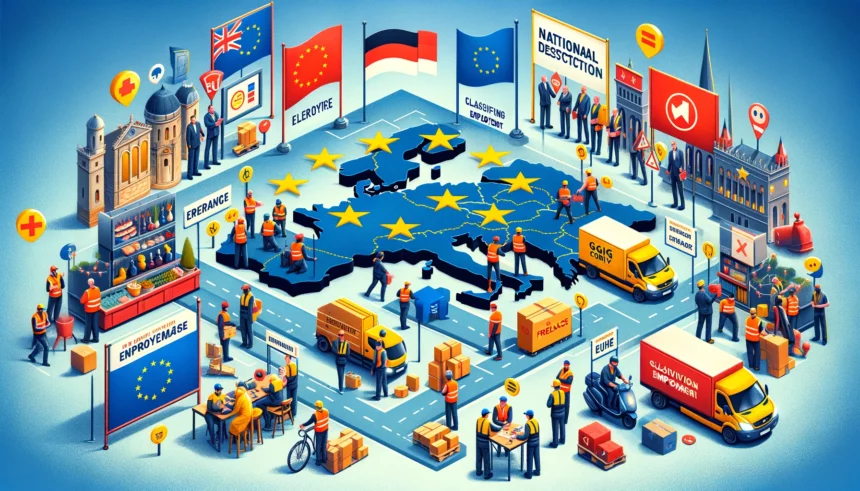Listen to the article now:
After enduring weeks of intensive discussions, the European Union member states have unified to establish a new regulatory framework for the gig economy. This crucial development transpired during the assembly of EU employment ministers in Brussels, where an agreement was endorsed, signaling a pivotal advancement in the ongoing debate over the classification of gig workers.
Historically, the gig economy1 has thrived under a veil of regulatory ambiguity, with workers often categorized as independent contractors. This classification deprived them of benefits typically associated with employment, such as sick pay. The original directive sought to rectify this by introducing criteria for classifying gig workers as employees. Nevertheless, divergent views among member states necessitated amendments to the directive, culminating in a version that grants individual countries the latitude to determine their own classification standards, albeit without a prescribed set of criteria.
Despite reaching a consensus, not all member states viewed the compromise favorably. Prominent countries like France and Germany, alongside Estonia and Greece, had initially obstructed the agreement, questioning its potential efficacy. Their concerns notwithstanding, the concurrence on Monday exhibited a predominant desire among member states to progress with the regulation initiative.
The newly approved agreement has elicited mixed reactions. On one side, it represents a significant stride towards recognizing and protecting the rights of gig economy workers across the EU. On the other, it faces criticism for its perceived leniency and lack of uniformity. Critics, including Move EU, an association representing prominent ride-hailing services, argue that the directive falls short of creating a standardized EU-wide policy, thereby perpetuating legal uncertainties for gig economy participants.
The directive, originating from the European Commission’s proposal in 2021, targets the burgeoning gig worker demographic within the EU, currently estimated at 28 million and projected to escalate to 43 million. As the EU edges closer to refining the labor and social rights for gig economy workers, the directive’s impact remains a focal point of speculation. Industry representatives, such as those from Uber and Deliveroo, contend that the revised regulations may not significantly alter the status quo, highlighting a complex interplay between innovation, labor rights, and regulatory frameworks in the digital age.
- What is ‘Gig Economy”: If you’ve ever used an app to call a freelance taxi driver, book a holiday rental, order food or buy a homemade craft then you’ve probably participated in this segment of the economy.
The “gig economy involves the exchange of labour for money between individuals or companies via digital platforms that actively facilitate matching between providers and customers, on a short-term and payment-by-task basis,” according to the UK government. ↩︎
















